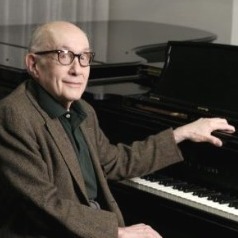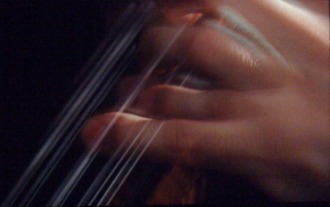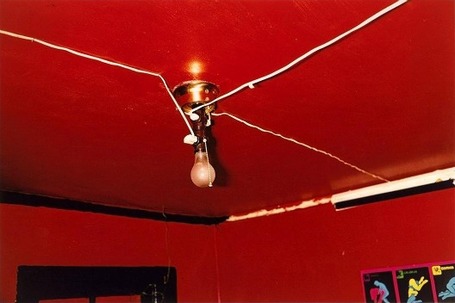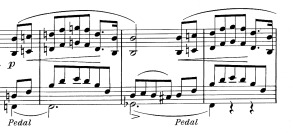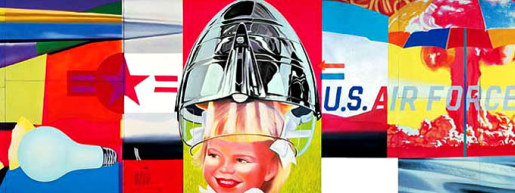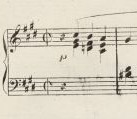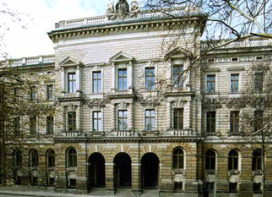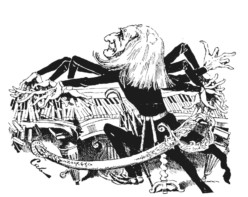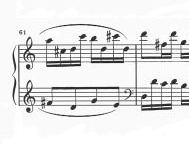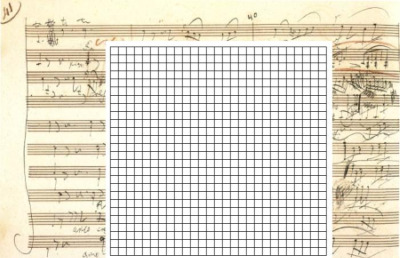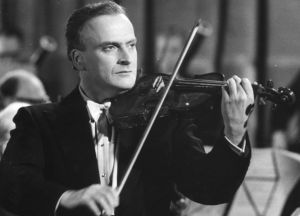Jacob Lateiner died this morning in New York. He was 82. The following passages are from my 1998 essay about his teaching: "In a sense, Jacob Lateiner does not give piano lessons. The piano is a tool for him. It's a means or an obstacle to singing, speaking, and (fuga!) flying. In lessons, Jacob aims to be neutral. Part Socratic (or Talmudic?) questioner, part Freudian analyst (to the exactly punctual end of each session), Jacob allows his … [Read more...]
“Of which vertu…”
Alongside music representing elephants, swan, and kangaroos in Saint-Saëns' Carnival of the Animals, there's a section of music titled "Pianists" -- additional creatures caged in the zoo. There are still plenty of occasions when classical performers' hands, feet, and fingers are ogled, when playing is lauded just for dexterity, and coordination, for the technique that may allow art. For today's virtuoso musician, the term "virtuoso" can be … [Read more...]
In the 1980s
What did we talk about when we stayed up all night? Such earnest words filling a bright room. Music, people, death, music, love, writing, music, food. We never touched. (You didn't even like shaking hands.) But the words, sometimes shouted, poured out and over each other, more and more of them, thousands on and on until night was gone. … [Read more...]
Intertext
In his anxiety, Johannes Brahms read the slow movement of Ludwig van Beethoven's piano sonata, opus 10, number 3, and penned his own intermezzo in E-flat Minor, opus 118, number 6: (If D goes to C-sharp, then D Minor can go to E-flat Minor. Up can be down. 6/8 and eighth-notes, or 3/8 and sixteenths. Largo e mesto. Dies Irae? D-Es?) Earlier misprision led Brahms from playing the slow movement of Beethoven's Opus 2, number 2, to … [Read more...]
Day trading
After a chamber music master class, someone mentioned that if the students didn't sound better at the end of the session -- it must not have been a very good master class. We want musicians to improve. But, how quickly? Can we assess progress after half an hour, at the end of a concert season, or a 4-year degree? In the master class, one student pianist was asked to play a difficult passage faster -- not to take extra time to negotiate its … [Read more...]
Inégales
During a master class I gave at the Gilmore Festival, I noticed something in Bartok's Barcarolla. The piece's notation mixes measures of 6/8, and 7/8, and 5/8. But in almost every bar there are two big beats. As in lots of folk music, and unscripted music, and perhaps in the actual performance of every kind of music -- these beats are not equal in length. In Bartok's text, some of the large beats are equal to 3 eighth-notes, others equal 4 … [Read more...]
Marshall Plan
William Kapell, Van Cliburn, Glenn Gould, Leon Fleisher, Gary Graffman, Jacob Lateiner, Eugene Istomin. These were among post-World-War-II American piano ambassadors. In the 1930s and '40s, so many artists, scientists, and intellectuals came to America. Then, in the '50s, these American-trained, fresh faces went into the world to reread the Classical music canon, part of the accidental urban-renewal of European culture. What happened next? To … [Read more...]
Connoisseurship
I was surprised when I mentioned James Rosenquist to a composer, a bright, musically informed musician. "Who's that?" the composer said. I'm skeptical of artists who don't know about their field. But what about other fields? Do musicians need to know about painting? Or dance? Or writing? Politics? Physics? A prospective doctoral student at Juilliard told the interviewing committee his favorite symphony by Beethoven was the Ninth. "Is … [Read more...]
Police witness
In U.S. criminal trials, juries are instructed that testimony given by police officers is no more or less reliable than testimony given by other witnesses. It has to be scrutinized. After Foucault, it seems absurd that in classical music we might still be so obsessed with "what the Composer wanted." Idris Khan: every ... stave of Frederick Chopin's Nocturnes for the piano We have texts. Texts that can be read variously, can be entered … [Read more...]
Scoreless
Just before playing a program that began with Chopin's Opus 45 Prelude, I started to think through the beginning of the music. Backstage in the green room, I had no piano and no copy of the written score -- and I couldn't recall the spacing, the exact arrangement of the notes, of the first chords in the piece. Solo pianists who play a lot of music by memory tend to be concerned about forgetting. For many pianists, it's the main focus of … [Read more...]
Job
Recently, Meredith Monk asked me about my job -- my teaching job. She mentioned that although at least one university invited her, she hasn't held an academic position. There's Philip Glass's story about Mme. Boulanger's offer to write a recommendation letter which, she said, would get him a college position when he got back to the U.S. He declined the letter, he says, because he certainly would have used it! Can you be the best possible … [Read more...]
“large capable hands”
Every hand is different. Often large hands or hands with wide reach are thought to be an advantage in piano playing. In general, hands are getting bigger as bodies do. That makes some big stretches in old keyboard music more accessible, and less risky. Very wide fingers are a difficulty. It may be impossible to play in between the piano's black keys -- as it was for Walter Gieseking. We know that a few players of the modern piano (Daniel … [Read more...]
Luigi Beethoven — postmodernist
Before, I've speculated that many of Beethoven's texts read as parody -- a mockery of 18th-century styles and practices. In some postmodern music -- John Zorn or Rzewski's People United -- musical styles, harmonic behaviors, or keyboard textures come on and off like readymade shirts in a fitting room. Though now it may be harder to discern (our subtle reception of old stylistic distinctions may be dulled), Beethoven does something … [Read more...]
Off the grid
By the later 20th Century, the performance of classical music -- for orchestra, also chamber music, and solos -- was dominated by pervasive strong regular beat. Emphasis on beat-regularity is the outcome or reflection of several musical and societal changes, among these mass production, the standardization of time keeping (time zones), the metronome, sound recording, the ascent of conducting, more emphasis on "full" scores, the practice of … [Read more...]
What Would Yehudi Do?
Perhaps we receive our most important education from models around us. We emulate them. And if we don't imitate behavior details, we may take on the approach or method of someone we admire. Vicarious models can be important. At 14, I devoured Arthur Rubinstein's My Young Years. I loved it more than Mr. Rubinstein's playing that I heard on recordings. The book seemed to offer a complete how-to-live prescription to a young pianist -- or young … [Read more...]

